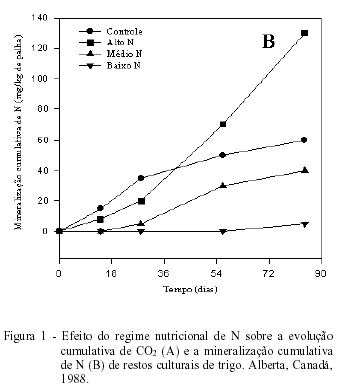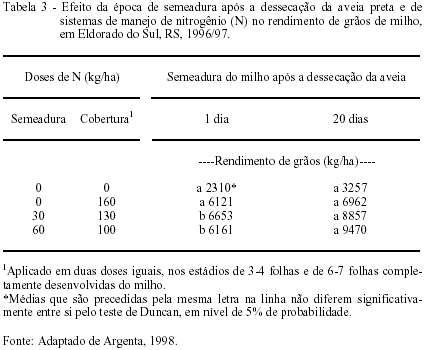Maize crop sowed in no-tillage in succession to grasses, generally, presents initial deficiency of N. This is attributed to the microbial immobilization of N during the decomposition process of straw with high C/N ratio. With the objective of reducing this deficiency it is recommended, for all situations, the application of 20-30kg/ha of N at sowing of maize. The question is if this recommendation is necessary for all situations? The objective of this review is to question the recommendation of N application at sowing of maize in succession to black oat and to discuss the efficiency of three other strategies that have been used to reduce inicial N deficiency in maize. The availability of N for crop in succession is controlled by the intensity of opposite and simulteneous processes of immobilization and mineralization of N during the decomposition of cultural residues by soil microbial population. It is influenced by the quantity, the C/N ratio and type of manegement of residues, soil temperature, regime water/air, pH and by N content of the soil. Therefore, the response of maize to N is strongly related to the environment. Other strategies have been proposed with the objective of reducing initial N deficiency in maize following black oat. Among them, it could be mentioned the delay of maize sowing date after oat desiccation, application of N at initial stages of development of oat, and the N application at management of oat, that is, before maize sowing. Therefore, to avoid generalizations the recomendation of N management in maize has to be done based on each specific case.
Zea mays L.; environment; delay of maize sowing date after black oat desiccation; N application at initial stage of black oat development; N application before maize sowing







